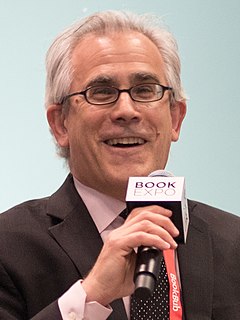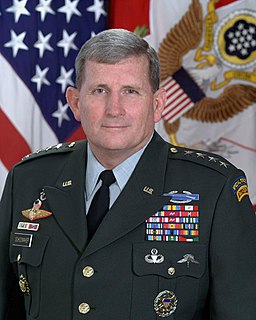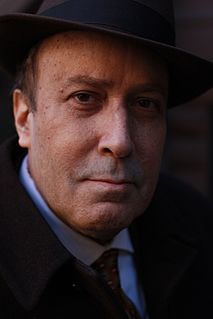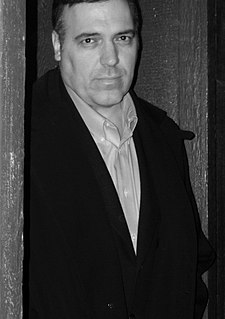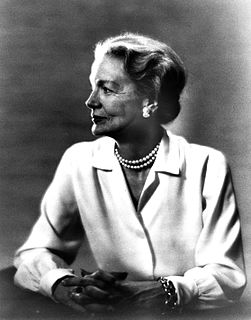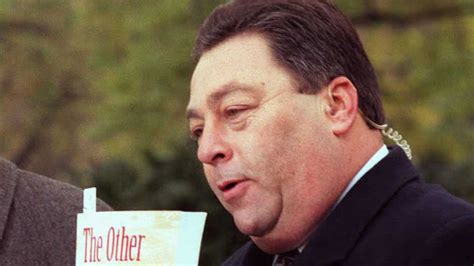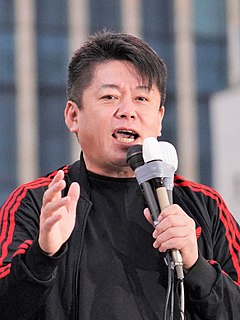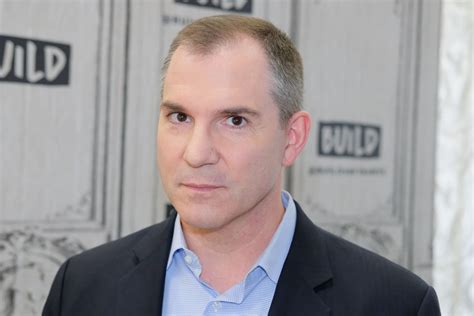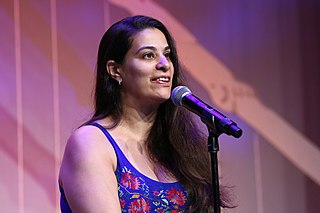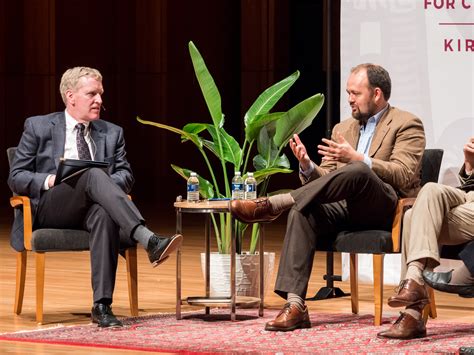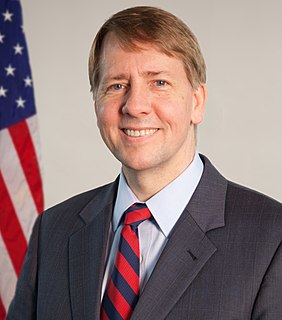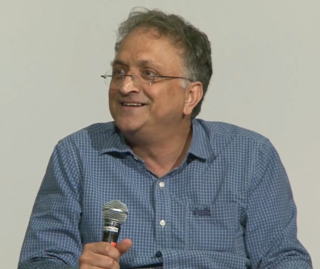Top 1200 Elections Quotes & Sayings - Page 19
Explore popular Elections quotes.
Last updated on April 21, 2025.
To straddle the middle ground and win elections, we have to be in charge of the political agenda. This can only be done by not being beaten in the argument with our critics. They complain that I come down too hard on their arguments. But wrong ideas have to be challenged before they influence public opinion and make for problems. Those who try to be clever at the expense of the government should not complain if my replies are as sharp as their criticisms.
A triumph in which Kissinger could claim to have played some little part, in the presidential elections that November, President Richard Nixon had won the second greatest landslide in American history. Forty-seven million Americans had voted for him - and for his and Kissinger's policies - representing more than 60 percent of all the votes cast.
We see and realise that the political situation in the United States is influenced by those who have lost the elections but refuse to accept their defeat, and who continue to use the anti-Russia card and various allegations most actively in the political infighting. This is why we are in no hurry, we are ready to wait, yet we strongly hope that Russian-US relations will become normal again sometime in the future.
It is necessary to heal the wounds of the past If you are going to build your country and to have unity. I am working with people who fought me very bitterly before the elections. It was my responsibility as the man who is leading the majority party, my responsibility to heal the wounds of the past and to work with people who were my opponents.
For too many years, those eligible to vote in primary or general elections did not bother to do so. Those sensible centrists who do not go to rallies but care deeply about our country effectively silenced their own voices. That sent the message to incumbents that they were either doing the right thing or that we just did not care.
This is the problem with foreign policy - talking about foreign policy in a political context. Politics is binary. People win and lose elections. Legislation passes or doesn't pass. And in foreign policy often what you're doing is nuance and you're trying to prevent something worse from happening. It doesn't translate well into a political environment.
In my public statements I have earnestly urged that there rested upon government many responsibilities which affect the moral and spiritual welfare of our people. The participation of women in elections has produced a keener realization of the importance of these questions and has contributed to higher national ideals. Moreover, it is through them that our national ideals are ingrained in our children.
I want people to start getting involved in voting for the Senate, Congress and local elections. I just want to see us get involved more in the political process especially when you see things like police brutality going on and different people complaining about the sheriffs whether it's in Ferguson or Missouri.
Maryland first allowed early voting during the 2010 primary elections. In November 2012, more than 16 percent of registered voters in Maryland cast their ballots during the early voting period, and some polling places, particularly in our larger jurisdictions, witnessed early voting lines that were hours long.
That elections of members to serve as representatives of the people, in assembly, ought to be free; and that all men, having sufficient evidence of permanent common interest with, and attachment to, the community, have the right of suffrage, and cannot be taxed or deprived of their property for public uses, without their own consent, or that of their representives so elected, nor bound by any law to which they have not, in like manner, assembled, for the public good.
When considering the Islamic world, Turkey is the best example of a country where democracy irreversibly gained a foothold despite religious and cultural traditions still respected today. With some reservation, this can be said about Pakistan, too, where we can observe dynamic political processes going on [and] governments change as a result of elections. In my opinion, it is up to the ruling elite to initiate cardinal changes.
If you can't, or won't, think of Seymour, then you go right ahead and call in some ignorant psychoanalyst. You just do that. You just call in some analyst who's experienced in adjusting people to the joys of television, and Life magazine every Wednesday, and European travel, and the H-bomb, and Presidential elections, and the front page of the Times, and God knows what else that's gloriously normal.
I declare that this government is no longer a constitutional and moral form of government. I will deal with it, and I will obey its laws, and I will support it when it is defending our country from foreign and domestic enemies. I will vote in its elections and participate in its political debates. But I will never accept it. I aim at a restoration of constitutional and moral order.
We were just at the beginnings of a recovery [in 2010]. And the, you know, whoever is president at that point is gonna get hit and his party's gonna get hit. That then means that suddenly you've got a redistricting in which a lot of state legislatures are now Republican. They draw lines that give a huge structural advantage in subsequent elections.
I'm very proud of the fact that Israel is the one country in a very broad radius that - in which Arabs have free and fair elections. That's sacrosanct. That will never change. I wasn't trying to suppress a vote. I was trying to get something to counter a foreign-funded effort to get votes that are intended to topple my party. And I was calling on our voters to come out.
Texans for Public Justice, an anti-corruption group based in Texas applauded the indictment. No jury can undo the outcome of Texas 2002 elections, ... but the justice system must punish those who criminally conspire to undermine democracy no matter how powerful they may be. If we are to be a democracy, then powerful politicians cannot flout such laws with impunity.
I recognize that individuals and organizations with tremendous financial clout and open access to the political system in the post-Citizens United era, are going to fight tooth and nail against a reinvigorated War on Poverty. But I also think that the elections of 2012 showed the limits of big money in politics, and the willingness of a majority of voters to really think these issues through for themselves.
There's all kinds of conservative donors. The Koch brothers are big donors. There's all kinds of them. But none of them have actively organized hate groups that run around and protest and try to upset people and get in as close as they can to their lives and the way they live them and make a nuisance of themselves. That's not how the right has always sought to win elections.
The democratic ideal springs from the ideas of liberty, equality, majority rule through free elections, protection of the rights of minorities, and freedom to subscribe to multiple loyalties in matters of religion, economics, and politics rather than to a total loyalty to the state. The spirit of democracy is the idea of importance and worth in the individual, and faith in the kind of world where the individual can achieve as much of his potential as possible.
How did abortion and birth control impact the congressional race of Dan Maffei and Ann Marie Buerkle or the presidential race between Barack Obama and Mitt Romney? I don't know. But I think the so-called social issues were front and center in the minds of voters. These issues may indeed have lost the Republicans some elections.
We know that greater participation in our democracy will make our government more responsible and make elected officials more representative of the people we serve. Making that participation easier while improving the integrity and security of our elections is something we should all be able to support.
Consider this: The United States held its first presidential election in 1789. It marked the first peaceful transfer of executive power between parties in the fourth presidential election in 1801, and it took another 200 years' worth of presidential elections before the courts had to settle an election.
The Democrats are losing. And look, folks, I don't mean to beat a dead horse here. I'm not doing anything other than pointing out what's actually factually happening. I'm not drawing any inferences from it. The Democrats are actually losing as themselves. They are losing elections if they are honest about what they want to do. It doesn't surprise me at all that Jon Ossoff would be running around.
I'm optimistic about our future as a party. It's about winning. The Democratic Party, if I had to do one word: winning. We need to win elections, because one thing I've learned is that when Democrats win good things happen to a lot of folks, and when we don't do so hot, we see a lot of chaos and carnage.
Russia and other countries have been hacking and attempting to attack American institutions for years, that Russia's attack on American elections has been going back for over 50 years. So this is nothing new. And the fact that this particular hack was perpetrated by Russian entities is something that no one is disputing.
There are good guys, and there are congressional people who are good guys, and I certainly vote in those elections. You know, my fondest dream would be if Obama, when he got out of office, decided he was going to go back and organize on the streets. He'd be the only person I could imagine who could really create a movement similar to what King did, and God knows we need that now.
In the last presidential election Obama and Romney raised about $1 billion each. The Koch brothers, the second wealthiest family in America, now say they will raise nearly $1 billion for the 2016 elections. When one family can raise as much as an entire party, the system is broken. This is oligarchy, not democracy. We must overturn Citizens United.
I think that our reliance on dynasty is part of the problem here, because dynasty is inherently undemocratic. It's a very entitled thing to suggest that only one member of one family can save a country of 180 million people. It has to be about people who live in constituencies coming forward to represent them, not the sort of parachuted, elite class that comes in, wins elections and then leaves.
I believe there are huge numbers of people in this country who would be willing to have radical changes in our economic and social system in order to make it a more egalitarian society and do away with homelessness and hunger and clean up the environment. But these people have no voice. They have no way of expressing themselves. Elections give them no way of expressing themselves.
The money that is spent in elections is absolutely unconscionable - even if it's private money. It's true that one's not corrupted by the expenditure of one's own money, but to some extent the system is. We cannot have a system in which the only people you can count on for a vote that doesn't look as though it might be a vote for a special-interest group are people with enormous fortunes.
You have to go back to the 1920s, almost a hundred years, to find the Democrat Party as weak and out of power as it is today. How did that happen with just one election? It didn't happen in one election. The fact is the Democrats have been losing elections, except for the White House, for the last eight years in numbers that have not been reported.
Starting in 1994, with the Republican election of Congress, I think [Rush] Limbaugh made a difference in electing the Republican majority. In the following three elections, he made the difference holding the majority. And in 2000, in the presidential race in Florida, he was the difference between Gore and Bush winning Florida, and thus the Presidency.
Boris Nemtsov and I began to argue after Putin's return to the presidency in 2012. In my opinion, there was no longer a realistic chance to achieve regime change through peaceful political means, or real elections. Boris, on the other hand, never lost this hope. He felt that my assessment was premature and said: "You have to live a long time to see changes in Russia." He was deprived of that opportunity.
Elections are a kind of business. I have to present myself: 'I can do this and that for this area so please give me your vote'. People vote for the politicians who can best understand and contribute to their region or country. In a business you can choose your clients, and the message is targeted to them only. But politics is universal; no matter what age the audience, you have to send the same message to everyone.
There is a political process which we are trying to achieve through what is called the Vienna Group. That involves the establishment of a governing council, which is to take power away from Bashar Assad, to write a constitution and to open the way for elections. It is important that Bashar leaves in the beginning, not at the end of the process. This will make the transition happen with less death and destruction.
I have an idea about voting, how about on every ballot we include "None of the above". People may laugh at that, but what that is, it is a vote of no confidence in your government and I'm willing to bet that in some elections, 'None of the Above' would win. Imagine if you won the election but lost to 'None of the Above'. Wouldn't that make you re-think your positions?
More frightening to me than any policy or politician is the ease with which the public is played for fools with words. The latest example is the 'Employee Freedom of Choice Act,' a bill that will do away with secret ballot elections among workers voting on whether to be represented by a union. It is an open invitation to intimidation - which is to say, loss of freedom of choice.
Just recently, President Donald Trump said that he believes that Mr. Vladimir Putin, when he said he didn't know about interfering in our elections - or he thought he was sincere. Quite frankly, Russia intentionally interfered in our election, and Mr. Putin was behind that. And the new sanctions need to be imposed.
You're encouraging a response in citizens and the public, that has nothing to do with an informed decision, that has nothing to do with policy, that has nothing to do with any of that but that just kind of turns it into a competition they're watching as if they're watching the Preakness or the Belmont Stakes and I think if we want people to make more cool-headed, sober-minded decisions covering elections as horse races is the antithesis of doing that.
The conventional wisdom is often wrong. Crime didn't keep soaring in the 1990s, money alone doesn't win elections, and - surprise - drinking eight glasses of water a day has never actually been shown to do a thing for your health. Conventional wisdom is often shoddily formed and devilishly difficult to see through, but it can be done.
Frequent elections are unquestionably the only policy by which this dependence and sympathy can be effectually secured. But what particular degree of frequency may be absolutely necessary for the purpose, does not appear to be susceptible of any precise calculation; and must depend on a variety of circumstances with which it may be connected. Let us consult experience, the guide that ought always to be followed, whenever it can be found.
It's normal that elections make fierce partisans of many of us. It's normal that Mr. Trump would attract the usual right-wing buffoons to his banners. Normal, also, is that many voters may not be troubled by Mr. Trump's cruder statements when they hear him addressing their deepest economic and social anxieties.
I think Donald Trump should be delegitimized for many reasons. And his response to this hacking is also cause for delegitimization. But to say we should move on, when the bedrock of American democracy, the sanctity of our elections, has been messed with, just raises suspicions. His denial of it happening or its seriousness shows that there is something really amiss from his end of it.
We passed the Voting Rights Act of Virginia, which restores and builds on key provisions of the 1965 federal Voting Rights Act that was gutted by the United States Supreme Court. Voting is fundamental to our democracy, and this legislation is a model for how states can ensure the integrity of elections and protect the sacred right to vote.
Yet optimism is in order, because day by day democracy is proving itself to be a not-at-all-fragile flower. From Stettin on the Baltic to Varna on the Black Sea, the regimes planted by totalitarianism have had more than 30 years to establish their legitimacy. But none - not one regime - has yet been able to risk free elections. Regimes planted by bayonets do not take root.
There are three major political organizations in this country: the Republican Party, the Democratic Party and the Koch Brothers Party. With billions to spend on campaigns. think tanks and 'educational' organizations, the Koch brothers are the most powerful. We must overturn Citizens United, move to public funding of elections and pass real tax reform.
Fascists are flourishing politically in France and Italy, and now comes the murder of Pim Fortuyn, a populist politician who might have done well enough in the forthcoming Dutch elections to hold the balance of power in that country's parliament. But it is the widespread Jew-baiting that best reveals that Europeans are evidently incapable of learning from their history. France is the outright prizewinner where anti-Semitism is concerned.
Economics, as it is often taught today, portrays us as homo economicus-someone who doesn't vote in presidential elections, doesn't return lost wallets, and doesn't leave tips when dining out of town. Julie Nelson reminds us that most people aren't really like that. She helps point the way to a richer, more descriptive way of thinking about economic life.
So long as the Constitution is not amended beyond recognition, so long as elections are held regularly and fairly and the ethos of secularism broadly prevails, so long as citizens can speak and write in the language of their choosing, so long as there is an integrated market and a moderately efficient civil service and army, and — lest I forget — so long as Hindi films are watched and their songs sung, India will survive
For years, liberals have demonstrated a near religious devotion to the cause of 'cleaning up elections' with campaign finance reform, the wondrous panacea that would finally rescue our great country from corruption in politics. ... How anyone could believe that corrupt politicians could or would legislate away their own corruption is completely beyond me.





